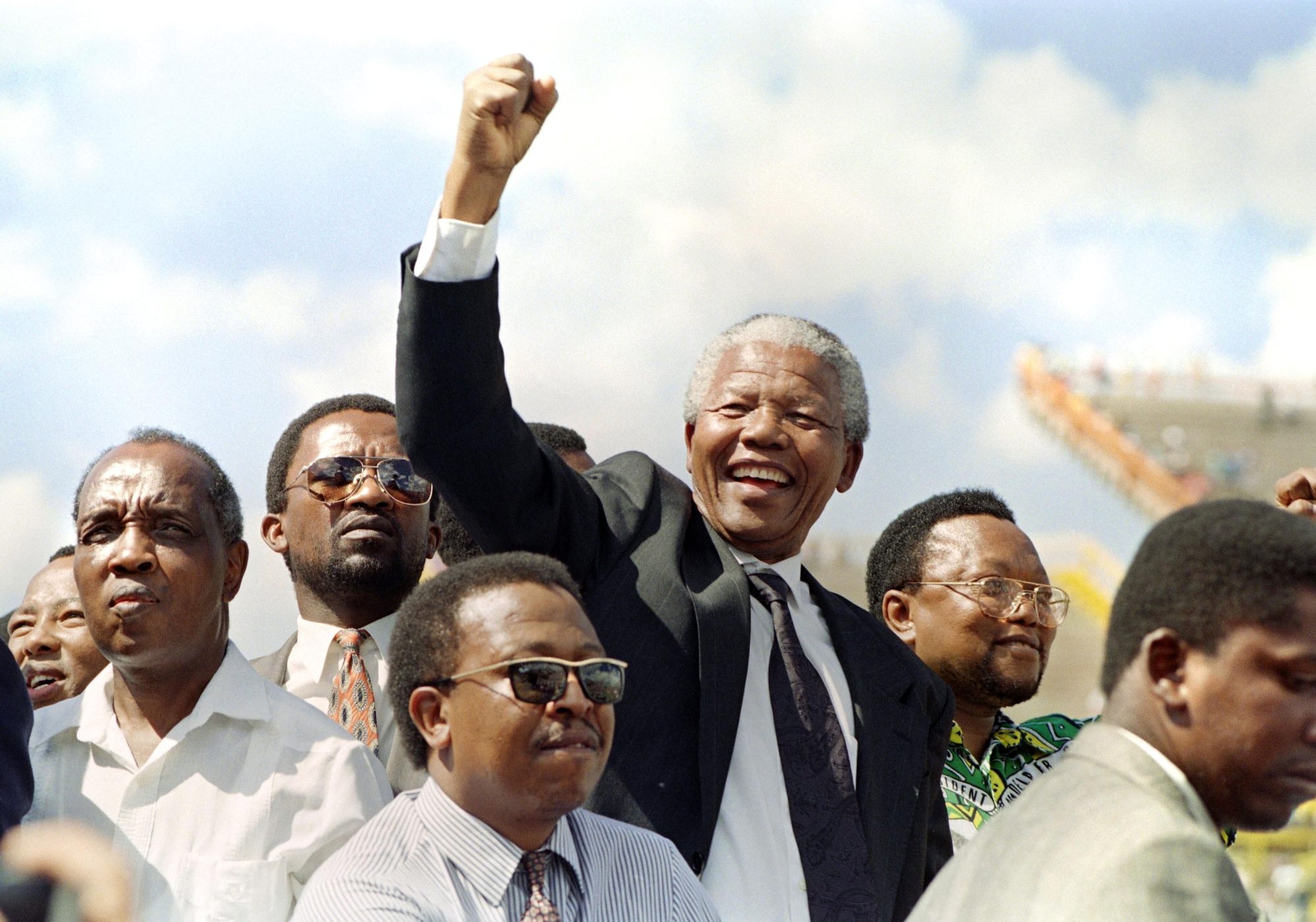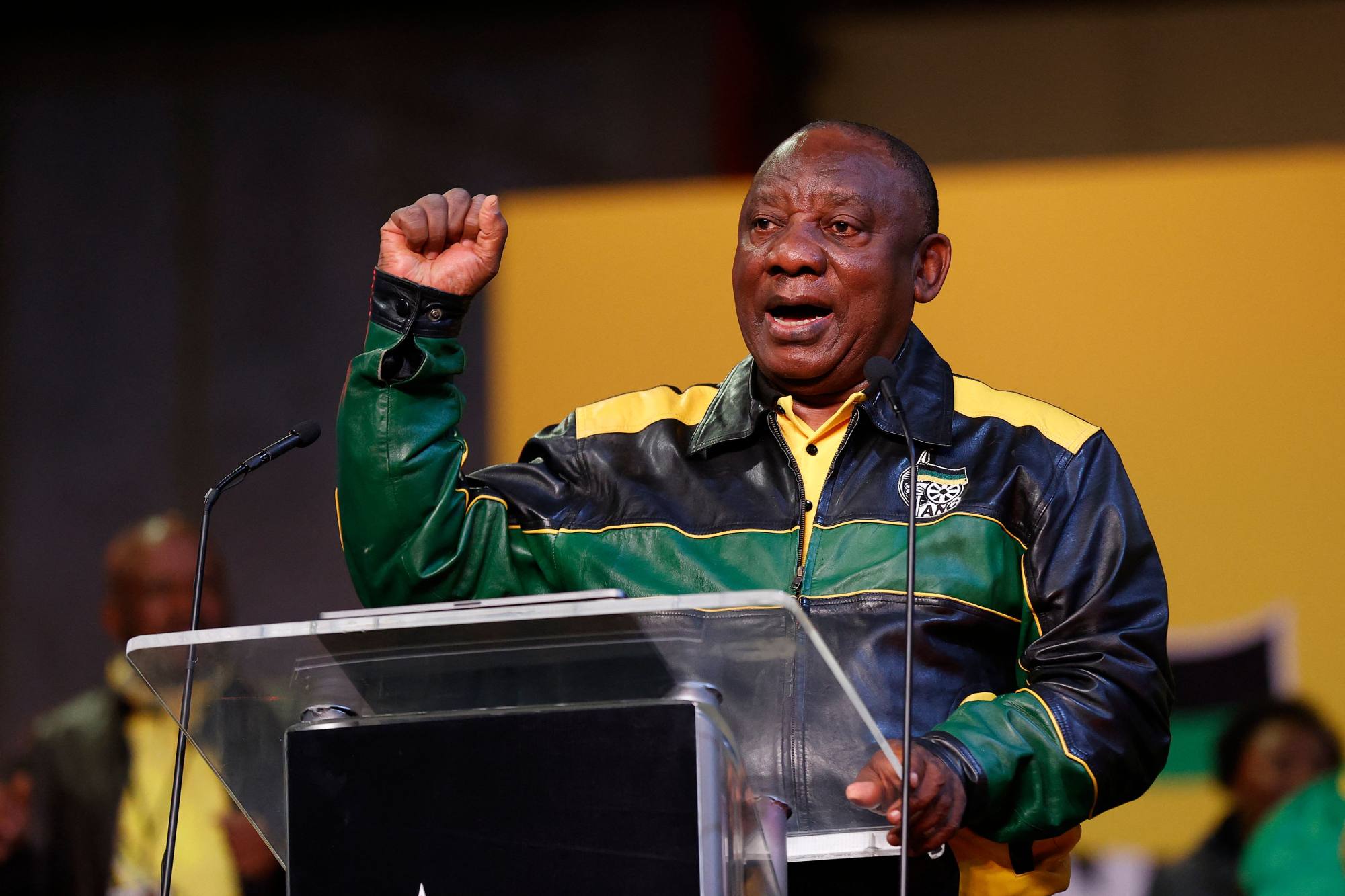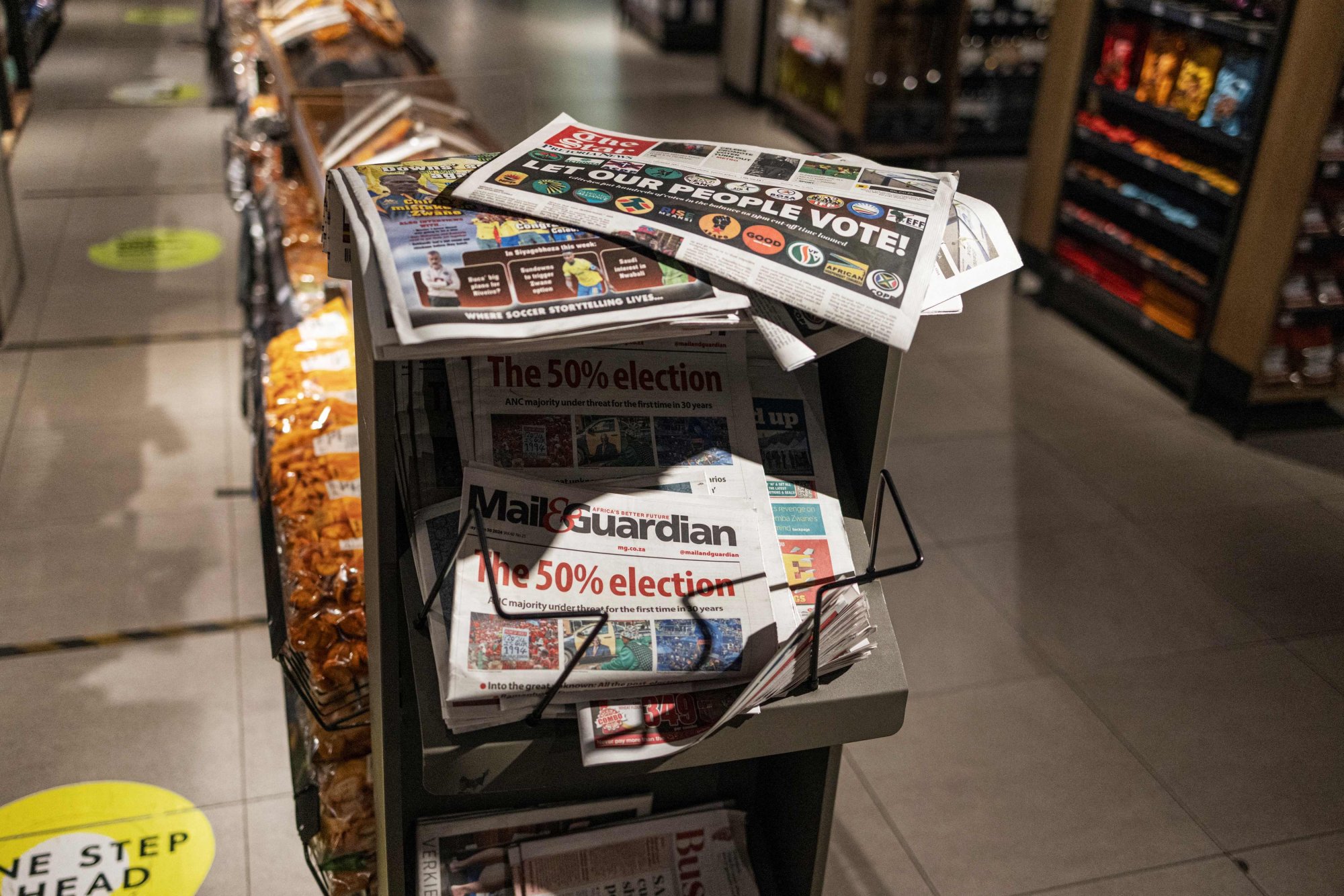The final results are not expected to be known before the weekend.
“The broad church of the ANC has taken a substantial knock. This is a shock to the system for the ANC and ultimately will also be a shock to the system for the average South African, who has only known ANC rule since 1994,” said political analyst Daniel Silke.
“It redraws the political boundaries of South Africa and creates a degree of uncertainty”.
The ANC has won national elections held every five years since the landmark 1994 election, which marked the end of white minority rule and the ascent of Nelson Mandela as president.
But since those heady days, the ANC’s support has declined because of disillusionment over issues such as high unemployment and crime, frequent power blackouts and corruption. Under South Africa’s constitution, the newly elected National Assembly will choose the next president. With the ANC still on course to be the largest party, that is likely to be its leader Cyril Ramaphosa, the incumbent.

If President Cyril Ramaphosa’s party is confirmed as dropping below 50 per cent, it would force him to seek coalition partners to be re-elected to form a new government.
That would be a historic evolution in the country’s democratic journey, which was underlined by newspaper headlines on Thursday.
“SA on the cusp of shift in politics,” read the front page of daily BusinessDay. “The people have spoken,” headlined The Citizen.
The ANC remains respected for its leading role in overthrowing white minority rule, and its progressive social welfare and black economic empowerment policies are credited by supporters with helping millions of black families out of poverty.
As life slowly returned to normal in central Johannesburg after voting day on Thursday, Shaun Manyoni, a 21-year-old student, having a morning beer outside his university, said his vote would help deliver change.
“The people in power are hopefully going to come down, and we will have a new political party,” he said.
Ramaphosa’s opponents from both the left and the right came to the polls on Wednesday, hoping either to replace the ANC with an opposition alliance or force the party to negotiate a coalition agreement.
“Zuma ran this country perfectly … so let’s put him back and let South Africa run again,” Don Naidoo, a middle-aged small business owner from the province’s largest city of Durban, said.

Voting was marked by hours-long queues in many districts, which in some cases forced polls to remain open well beyond closing time.
The Independent Electoral Commission (IEC) said a last-minute rush in urban voting and high turnout were to blame for the late finish, and predicted the final turnout would be “well beyond” the 66 per cent recorded in 2019.
If the ANC gets close to 50 per cent, it could shore up a majority by allying itself with some of the four dozen smaller and regional parties contesting the election.
But this appeared increasingly unlikely.
A projection by the respected the Council for Scientific and Industrial Research (CSIR), showed it was in line to win less than 42 per cent, a share that could force it to partner with a bigger rival.

Yet, experts were split on whom the ANC would prefer as bedfellows and on whether the poor performance threatened Ramaphosa’s leadership.
“His power is gone within the ANC,” said analyst Sandile Swana, predicting that the party would patch up ties with one or both of the radical left groups led by former ANC figures: firebrand Julius Malema’s EFF or Zuma’s MK.
In a major upset, the latter was leading with 43 per cent of preferences in Zuma’s home province of KwaZulu-Natal, a key electoral battleground.
Siphamandla Zondi, a politics professor from the University of Johannesburg, said MK was a natural partner for the ANC.
“They have similar policies and similar tendencies,” he said.
But analyst and author Susan Booysen said the rift between Ramaphosa and Zuma, who has long been bitter about the way he was forced out of office in 2018, was “too far-reaching” to mend.
The ANC might prefer the centre-right DA, which pledged to “rescue South Africa” through better governance, free market reforms and privatisations, to the leftist EFF, which is perceived as “too erratic” and “unpredictable” in its demands, she added.
Swana said he expects pressure from civil society to push for a convention to publicly discuss the make-up of a coalition.
“We don’t want politicians to talk among themselves,” he said.
By law, the electoral commission has seven days to declare full results, but in practice it is usually faster than that. In the last election, in 2019, voting took place on a Wednesday like this year and final results came on the Saturday.
The new parliament must convene within 14 days of final results being declared, and its first act must be to elect the nation’s president.

